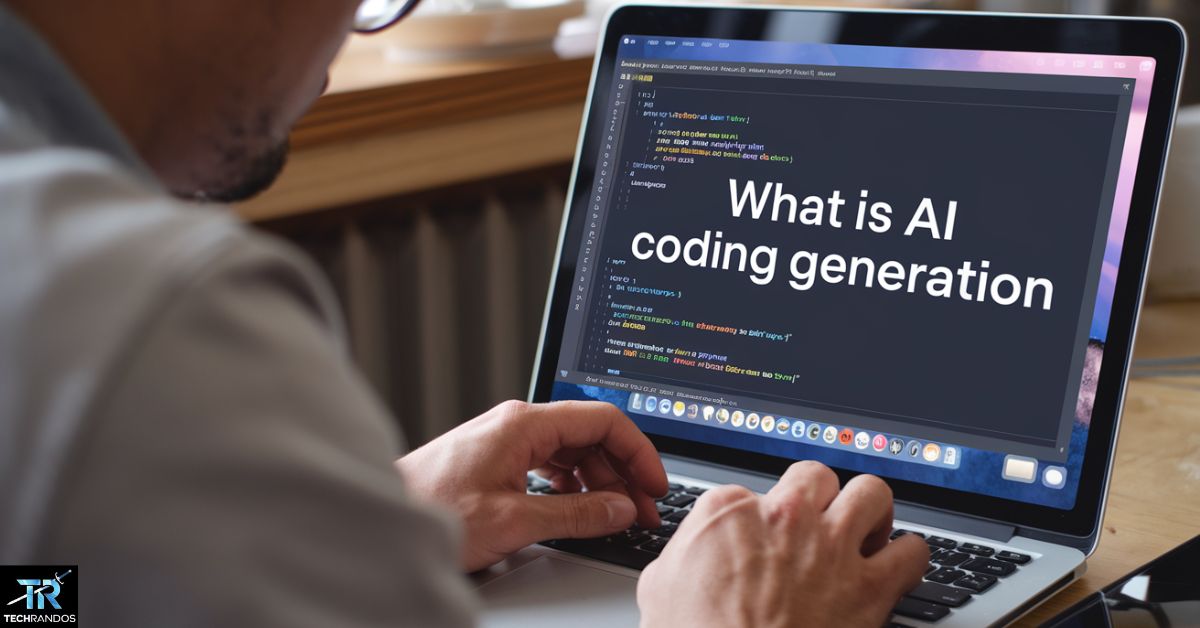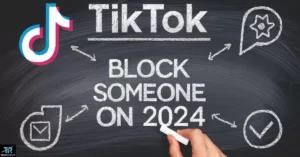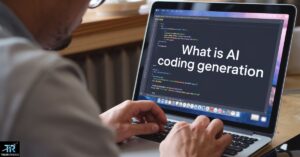AI code generation refers to the use of artificial intelligence to create software code automatically. It helps developers by writing code snippets or entire programs based on specific requirements. Instead of writing every line manually, programmers can use AI tools to speed up the process.
This technology analyzes existing code and learns from it, allowing it to improve over time. AI code generation makes programming easier for both beginners and experienced developers. As it advances, it aims to enhance productivity and reduce errors in software development.
The Transformative Power of AI Code Generation
In today’s breakneck software landscape, developers like yourself face a constant balancing act – delivering new features at lightning speed while maintaining rock-solid code quality. It’s a delicate dance that often leaves precious little room for creativity and innovation. But what if I told you there’s a transformative technology that can tip the scales firmly in your favor? Introducing the game-changing world of AI code generation.
This cutting-edge approach is revolutionizing the software development process, empowering coders to work smarter, not harder. By harnessing the power of machine learning and natural language processing, AI-driven code generation tools can take your vague ideas and natural language prompts and transform them into fully-fledged code snippets and even entire functions.
Imagine never again having to waste precious time scouring the web for that elusive piece of boilerplate. AI code generation takes care of the tedious, repetitive tasks, freeing up your mental bandwidth to focus on the truly innovative aspects of your projects. But the benefits of these AI assistants extend far beyond mere time savings.
You see, these tools also possess the uncanny ability to spot potential issues and suggest security enhancements – all before a single line of code is ever deployed. By seamlessly integrating automated testing and bug detection, they ensure your software not only ships faster, but with a bulletproof level of reliability and stability.
And the impact doesn’t stop there. AI code generation also has the power to uplevel your coding skills, serving as a virtual mentor to developers of all experience levels. Whether you’re a seasoned veteran looking to expand your language repertoire or a newcomer eager to level up your craft, these AI assistants can provide guidance and insights that can take your programming prowess to new heights.
Demystifying AI Code Generation
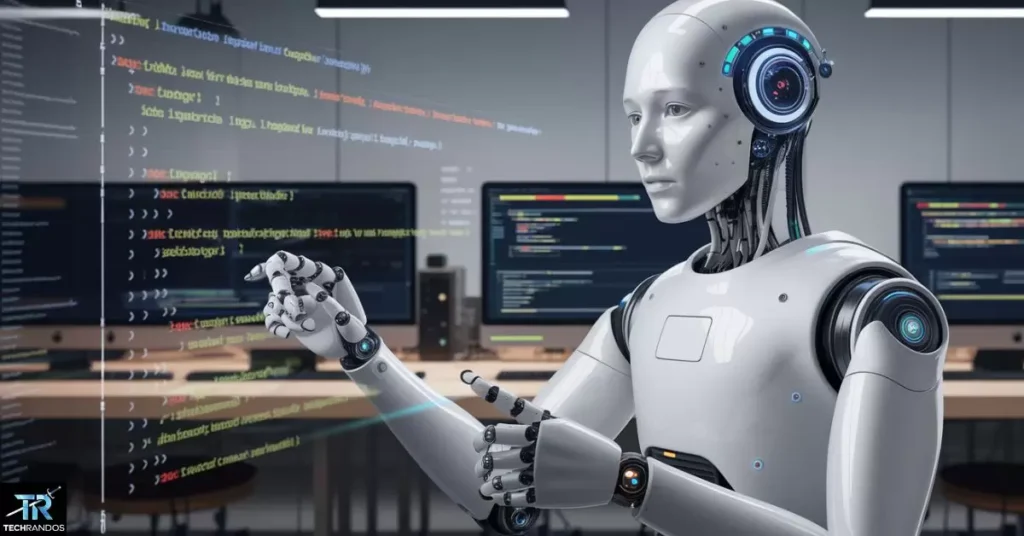
At its core, AI code generation is a revolutionary approach to software development that leverages the power of machine learning and natural language processing to generate code from textual descriptions and existing source code. By training algorithms on vast repositories of open-source projects, these AI-driven tools can analyze patterns, understand context, and generate code suggestions that are tailored to the specific needs of the developer.
The process works like this: a developer starts typing code, and the AI tool will attempt to autocomplete or suggest additional lines based on the context of the existing code and any accompanying comments or natural language prompts. Alternatively, the developer can simply describe in plain language what they want the code to do, and the AI will generate a proposed solution.
But AI code generation is more than just basic autocomplete. These tools have the ability to understand the nuances of programming languages, detect potential issues, and even suggest security enhancements – all in real-time as the code is being written. For example, GitHub Copilot, a popular AI coding assistant created by GitHub using the OpenAI Codex model, analyzes the text within a developer’s code editor to provide highly contextual and relevant code suggestions.
It’s important to note, however, that AI-generated code isn’t always perfect. While these tools can provide a valuable starting point and significantly increase coding efficiency, the resulting code still requires careful review and testing by human developers. Think of these AI assistants as collaborative partners, not infallible code generators.
The Inner Workings of AI-Powered Coding
At the heart of AI code generation are large language models (LLMs) – powerful neural networks trained on massive datasets of natural language text, including source code from open-source projects. These LLMs are able to process and understand language, generate text, answer questions, and identify patterns and relationships that can be leveraged to predict the next logical lines of code.
The training process for these AI models is no small feat. Developers and researchers painstakingly curate and clean the training data, ensuring it represents a diverse range of programming languages, coding styles, and software domains. The models are then trained using advanced machine learning techniques like transfer learning, which allows the AI to build upon its foundational knowledge and adapt to new, more specific tasks.
Once the models are trained, they can be fine-tuned and deployed as part of AI code generation tools. These tools leverage the LLMs’ natural language understanding and pattern recognition capabilities to provide developers with context-aware code suggestions. By analyzing the text in a developer’s code editor – including any comments, variable names, or existing code snippets – the AI can make highly relevant recommendations to accelerate the coding process.
But the capabilities of AI code generation go beyond simple autocomplete. These tools can also generate entire functions or even classes based on natural language prompts, saving developers significant time and effort. And as more specialized AI models and fine-tuned datasets become available, the level of sophistication and context-awareness will only continue to improve.
Of course, it’s important to remember that AI-generated code is not infallible. While these tools can provide a solid foundation, the resulting code should always be carefully reviewed and tested by human developers before being incorporated into production software. Leveraging the strengths of both human and machine intelligence is the key to unlocking the full potential of AI code generation.
The Caveats of AI-Generated Code
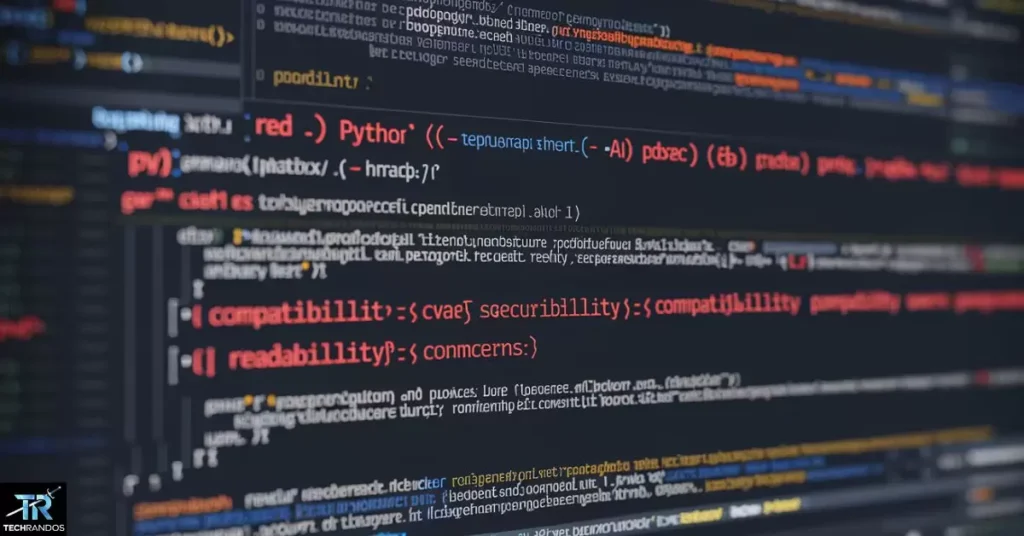
While AI code generation undoubtedly offers a wealth of benefits, it’s essential to understand its limitations and potential drawbacks. After all, these tools are not a magic bullet that can solve all of your coding woes with the snap of a digital finger.
One of the primary considerations is the quality and accuracy of the AI-generated code. Despite the impressive capabilities of large language models and machine learning algorithms, they can still produce code that is buggy, insecure, or simply not fit for purpose. This is why it’s crucial for developers to always review and test the code suggested by these AI tools before integrating it into their projects.
Another important factor is the variability in language model support across different programming languages. While some AI code generation tools may excel at generating code for popular languages like Python or JavaScript, they may struggle with more niche or esoteric languages. Developers need to carefully evaluate the specific capabilities and limitations of the tools they’re using to ensure they’re a good fit for their codebase.
Additionally, AI-generated code may not always adhere to established coding standards and best practices. While these tools can offer valuable productivity boosts, developers must still maintain a keen eye for code quality, readability, and maintainability. Blindly accepting every suggestion from an AI coding assistant can lead to technical debt and future headaches.
Perhaps most importantly, developers must always remember that AI is not a replacement for human expertise. These tools are designed to augment and assist developers, not to completely automate the coding process. The human touch is still essential for tasks like architectural design, problem-solving, and strategic decision-making.
Read Also Article: What Is the Primary Objective of AI?
Supercharging Developer Productivity
One of the most significant benefits of AI code generation is its ability to supercharge developer productivity. By automating repetitive, time-consuming tasks and providing valuable code suggestions, these tools free up developers to focus on more strategic and creative aspects of their work.
According to a survey of over 2,000 developers, those who reported the highest productivity gains from using GitHub Copilot were also the ones who had accepted the largest number of code suggestions. The data shows that 88% of developers reported being more productive when using the AI coding assistant, and 96% were able to complete repetitive tasks faster.
But the benefits of AI code generation go beyond mere time savings. These tools also help developers stay on task and make meaningful progress, leading to a greater sense of satisfaction and accomplishment at the end of the workday. In fact, 74% of developers using GitHub Copilot reported being able to focus on more satisfying work.
By automating the grunt work and providing intelligent code suggestions, AI coding assistants allow developers to:
- Streamline repetitive tasks: Generating boilerplate code, writing tests, and other mundane coding activities are now handled by the AI, freeing up valuable time and mental energy.
- Focus on higher-level problem-solving: With the menial tasks taken care of, developers can devote more attention to the strategic and innovative aspects of their work.
- Maintain momentum and flow: By reducing context switches and eliminating time-consuming searches for code snippets, AI code generation helps developers stay in the zone and make continuous progress.
- Enhance overall job satisfaction: Feeling more productive, engaged, and able to work on interesting challenges can lead to greater job satisfaction and reduced burnout.
Of course, the specific productivity gains will vary depending on the individual developer, the complexity of the project, and the capabilities of the AI code generation tool being used. But the overall trend is clear: these innovative technologies are transforming the software development landscape, empowering coders to work smarter and achieve more.
Enhancing Code Quality and Security

In addition to boosting developer productivity, AI code generation also plays a crucial role in improving the quality and security of the code being produced. By leveraging advanced machine learning and natural language processing capabilities, these tools can identify potential issues and suggest optimizations that help ensure the integrity and reliability of the software.
One of the key ways AI code generation enhances code quality is through automated testing and bug detection. By analyzing the structure and patterns of the code, these tools can identify potential vulnerabilities and recommend appropriate fixes or enhancements. This not only helps to catch issues earlier in the development process but also promotes a culture of proactive quality assurance.
Furthermore, AI-powered coding assistants can suggest security improvements that help mitigate the risk of threats and breaches. From identifying common security anti-patterns to proposing secure coding practices, these tools play a vital role in hardening the codebase and protecting against malicious actors.
But the benefits of AI code generation extend beyond just identifying and fixing problems. These tools can also help to optimize the code for better performance, maintainability, and scalability. By understanding the nuances of different programming languages and architectures, AI coding assistants can provide recommendations that improve the overall quality and efficiency of the software.
Of course, it’s important to note that AI-generated code is not a silver bullet for quality and security. As mentioned earlier, these tools should be viewed as collaborative partners, not infallible code generators. Developers must still exercise their own critical thinking and domain expertise to ensure the code being produced meets the necessary standards and requirements.
By striking the right balance between human oversight and AI-powered assistance, software teams can unlock a new level of code quality and security, ultimately delivering more robust and reliable products to their users.
Elevating Coding Skills and Abilities
In addition to boosting productivity and enhancing code quality, AI code generation also has the potential to elevate the coding skills and abilities of developers at all experience levels. By serving as a virtual mentor and providing valuable insights, these tools can help developers expand their language repertoire, tackle complex challenges, and continuously improve their craft.
One of the key ways AI coding assistants can enhance developer skills is by offering guidance and suggestions that address specific areas for improvement. For example, a junior developer struggling with a particular coding pattern or syntax could receive tailored recommendations from the AI, helping them overcome their knowledge gaps and become more proficient.
But the benefits of AI-powered coding extend beyond just beginner-level support. Even seasoned developers can leverage these tools to explore new programming languages, experiment with different approaches, and stay up-to-date with the latest best practices and industry trends.
By providing contextual code suggestions, language translation capabilities, and insights into coding patterns and anti-patterns, AI coding assistants can serve as valuable learning resources for developers at all stages of their careers. This not only helps to upskill the current workforce but also prepares the next generation of programmers for the demands of the future.
Moreover, the integration of AI code generation into the development workflow can also help to foster a culture of continuous learning and improvement. As developers embrace these tools and see the tangible benefits they provide, they may be more inclined to seek out other opportunities for skill development, further enhancing their value to their organizations.
Of course, it’s important to remember that AI-powered coding is not a replacement for fundamental programming knowledge and problem-solving skills. These tools are designed to augment and assist developers, not to replace the need for deep technical expertise and critical thinking. By striking the right balance between human and machine intelligence, developers can leverage AI code generation to become more versatile, efficient, and valuable members of their teams.
AI-Powered Coding in Action

As AI code generation continues to evolve and become more widely adopted, we’re seeing a growing number of real-world applications and use cases across the software development lifecycle. From streamlining the requirements gathering process to automating code analysis and testing, these innovative tools are transforming the way developers work.
One prime example is the use of AI code generation in the context of open-source software development. GitHub Copilot, the popular AI coding assistant, has become a valuable resource for developers contributing to public repositories. By providing context-aware code suggestions and natural language-based coding assistance, Copilot helps open-source contributors write high-quality code more efficiently, ultimately accelerating the development and deployment of community-driven projects.
But the impact of AI-powered coding isn’t limited to the open-source realm. Enterprises are also embracing these technologies to drive productivity and innovation within their software development teams. By leveraging AI code generation tools, organizations can:
- Streamline requirements gathering and documentation: AI-powered assistants can help identify ambiguities or gaps in software requirements, offering suggestions for improvement and ensuring a more robust foundation for the development process.
- Automate code analysis and testing: Machine learning algorithms can detect potential bugs and vulnerabilities, recommend security enhancements, and automatically generate test cases to validate the code’s functionality.
- Boost productivity in complex development environments: In large, enterprise-scale projects with diverse codebanks and team structures, AI coding assistants can provide valuable guidance and support to help developers work more efficiently.
As these examples illustrate, the applications of AI code generation are diverse and far-reaching. From open-source projects to enterprise-level software development, these innovative tools are revolutionizing the way code is written, tested, and deployed.
Conclusion: Embracing the Future of Coding with AI
In the ever-evolving world of software development, the rise of AI code generation represents a profound shift in the way we approach the coding process. By harnessing the power of machine learning, natural language processing, and large language models, these innovative tools are empowering developers to work smarter, not harder, and unlock new levels of productivity, quality, and creativity.
Whether you’re a seasoned veteran or a newcomer to the field, AI-powered coding has the potential to transform the way you approach your craft. By providing context-aware code suggestions, automated testing and security enhancements, and valuable learning opportunities, these tools can help you deliver high-quality software faster, while also elevating your skills and expanding your coding capabilities.
Of course, it’s important to remember that AI code generation is not a panacea for all of your development challenges. These tools should be viewed as collaborative partners, not infallible code generators. Developers must still exercise critical thinking, maintain vigilance, and uphold the highest standards of code quality and security.
But by striking the right balance between human expertise and AI-powered assistance, you can unlock the true potential of AI code generation and propel your software development efforts to new heights of speed, efficiency, and innovation. The future of coding is here, and it’s time to embrace the transformative power of this cutting-edge technology.
Frequently Asked Questions
How do large language models work in the context of AI code generation?
Large language models (LLMs) like the ones used in AI code generation tools are powerful neural networks trained on massive datasets of natural language text, including source code from open-source projects. These LLMs are able to process and understand language, generate text, answer questions, and identify patterns and relationships that can be leveraged to predict the next logical lines of code.
What are the key limitations of AI-generated code?
While AI code generation tools can provide valuable productivity boosts, the resulting code may not always be perfect. Developers need to carefully review and test any AI-generated code before integrating it into their projects, as these tools can sometimes produce buggy, insecure, or suboptimal code. Additionally, the support for different programming languages can vary across AI coding assistants.
How do AI code generation tools boost developer productivity?
By automating repetitive, time-consuming tasks and providing valuable code suggestions, AI coding assistants free up developers to focus on more strategic and creative aspects of their work. Surveys show that developers who use these tools report increased productivity, the ability to complete repetitive tasks faster, and more time dedicated to satisfying work.
What are the key ways AI code generation can enhance developer skills?
AI coding assistants can serve as virtual mentors, offering guidance and suggestions that address specific areas for improvement. These tools can help developers expand their language repertoire, tackle complex challenges, and continuously improve their craft by providing contextual code suggestions, language translation capabilities, and insights into coding patterns and anti-patterns.
What is the key to successfully leveraging AI code generation?
The key is to strike the right balance between human expertise and AI-powered assistance. Developers must exercise critical thinking, maintain vigilance, and uphold the highest standards of code quality and security. By combining the strengths of both human and machine intelligence, developers can unlock the true potential of AI code generation and propel their software development efforts to new heights.
How will the future of AI code generation continue to evolve?
As more specialized AI models and fine-tuned datasets become available, the level of sophistication and context-awareness of AI code generation tools will only continue to improve. This will further solidify the role of AI-powered coding as an essential component of the modern software development landscape, empowering developers to work smarter, not harder, and create software that truly shines.
